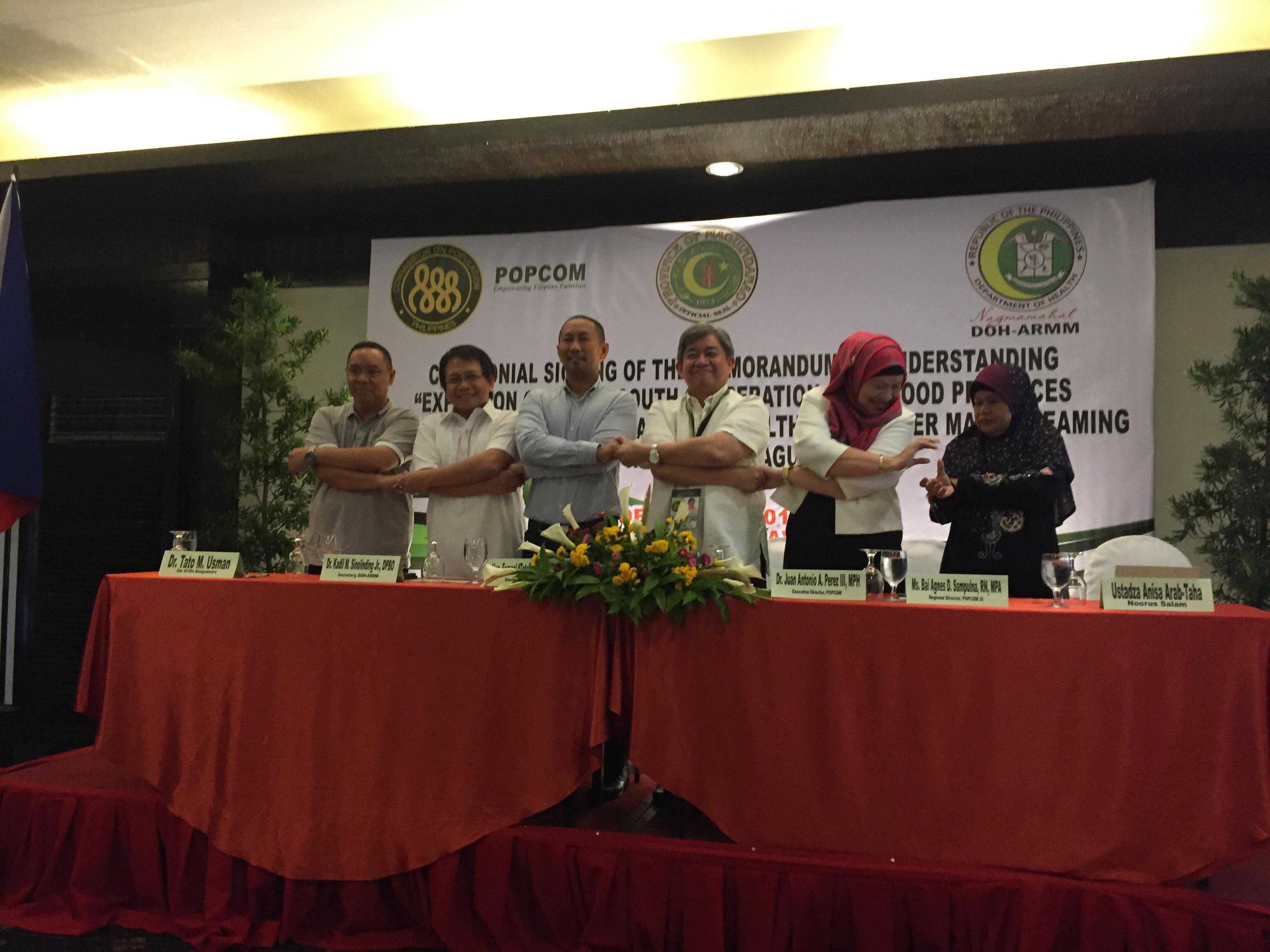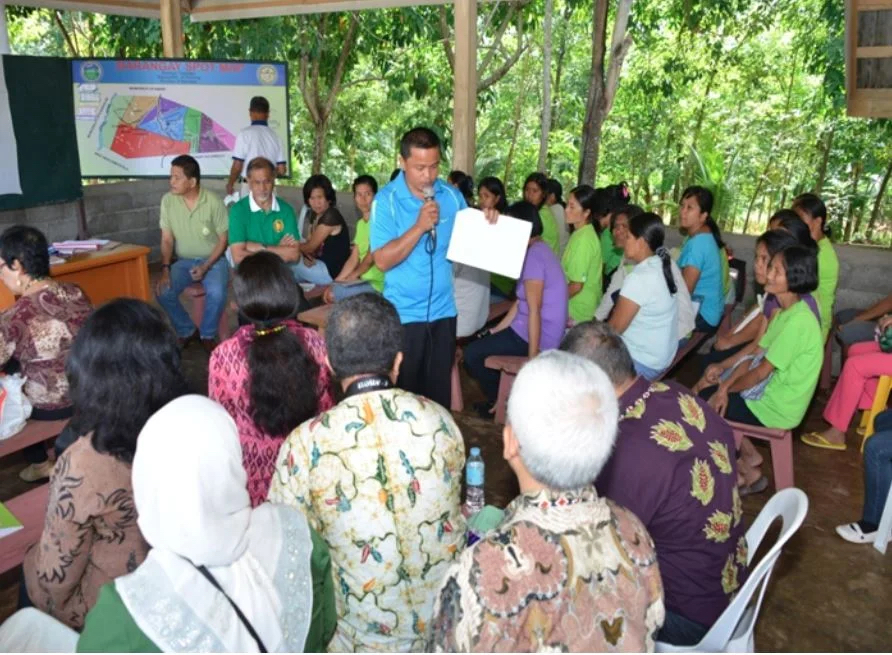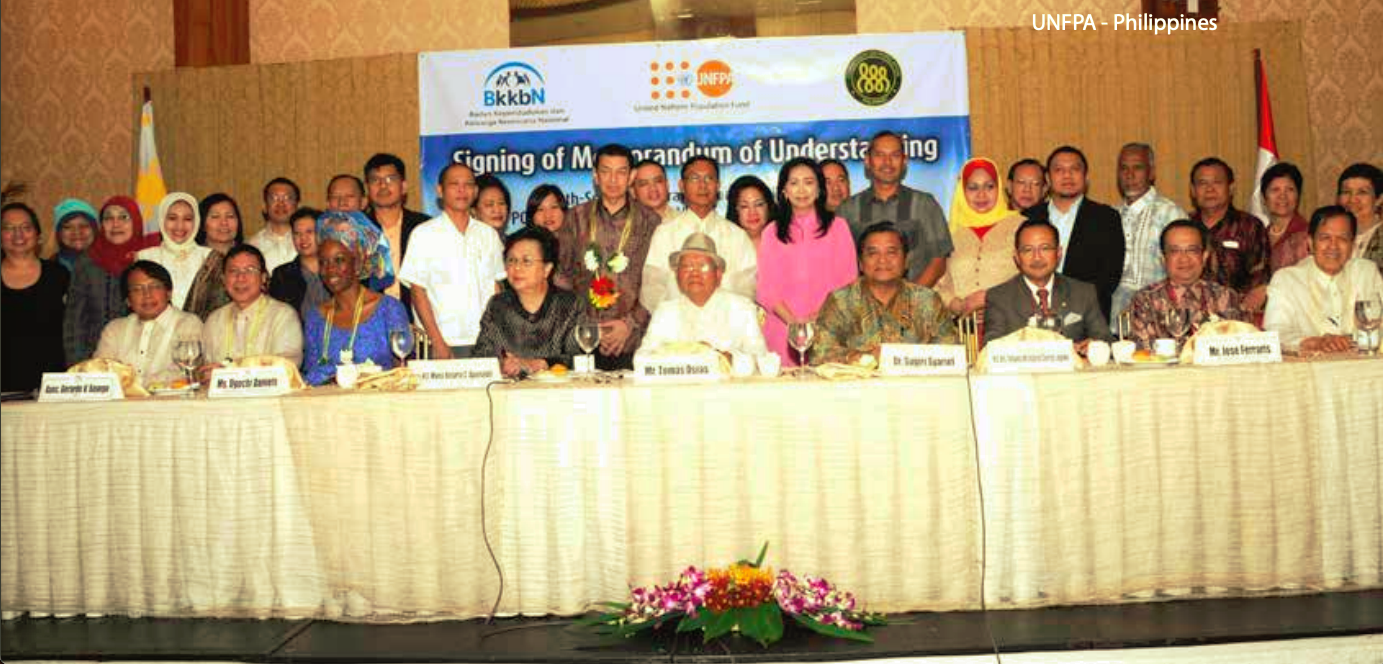 Cooperation to Support Women’s Role and Family Planning in Muslim Settings
Advancing family planning and gender advocacy in the Philippines’ Muslim region through partnership with Indonesia.
Cooperation to Support Women’s Role and Family Planning in Muslim Settings
Advancing family planning and gender advocacy in the Philippines’ Muslim region through partnership with Indonesia.

Challenges
For the past several decades, addressing religious beliefs around the issue of family planning has been a big challenge for the international Muslim community, raising concerns regarding its compatibility with Islamic teachings. While some Muslim States and organizations have adopted a cautious approach to the issue, others, like Indonesia, have mobilized religious leaders to present religiously sound interpretations (known as a fatwa, a religious opinion on Islamic law issued by an Islamic scholar) on the subject. While access to family planning information and services has been widespread and more accessible in developing countries, in some Muslim countries the level of awareness remains low and there are misconceptions related to its acceptability from an Islamic perspective.
Indonesia, which has the largest Muslim population of any country in the world, has seen a fertility decline in the past decades. Religious leaders have played an important role in influencing the attitude of the community towards family planning. The Government of Indonesia, with technical support from UNFPA, embarked on strategic partnership through South-South and Triangular Cooperation with Muslim Indonesia and the Philippines, specifically the Autonomous Region in Muslim Mindanao (ARMM), that share a common cultural background and religion. With their population predominantly Muslim, they are well placed to share and exchange experiences, good practices and expertise on issues relating to family planning and reproductive health, as well as the role of women.
For many years, the ARMM region had shown poor performance in terms of access to maternal and childcare services and contraceptive use, among others. Therefore, the region could benefit from the 40-year experience of Indonesia in reproductive health and family planning implementation, especially in its strategic collaboration with Muslim religious and community leaders. On the other hand, Indonesia’s reproductive health/family planning programming could be further enriched by strengthening local governance related to reproductive health and family planning, fostering partnerships with civil society organizations and enhancing the role of women in policy and programming — areas that the Philippines has experience and a well-regarded reputation. The successful passage of the Reproductive Health Law in 2012, for example, was possible after more than 14 years of civil society and women’s sector advocacy, and gave the Philippines ample experience, including good practices and lessons learned, which could be shared with Indonesia.
Towards a Solution
This cooperation between the Philippines and Indonesia was wholly government-owned, through the two largest agencies directly involved in reproductive health and family planning — the Population Commission of the Philippines and the National Population and Family Planning Development Board (BKKBN) of Indonesia taking the lead. The United Nations Population Fund (UNFPA) brokered and facilitated the partnership. The aim was to introduce and share the successful experience of Indonesia in implementing acceptable family planning programmes within a Muslim setting. The training focused on how Islam views the family planning concept, including clarifying common misconceptions, and how the concept is translated by Muslim religious leaders and Islamic institutions through their participation and active support to family planning services and information. This was applied in various settings, including schools, hospitals and clinics, and advocacy took place for the establishment of fatwas or declarations of religious leaders supporting family planning and dissemination of training to local community leaders through pilot projects, among others.
The Philippines and Indonesia forged a five-year plan (2012-2017) under which national and local government officials and Muslim religious leaders from the two countries conducted cross-learning activities in the form of training, field exposure, internship, workshops and exchange visits. The twin purpose of the collaboration was to learn from each other by exchanging good practices that could be applied, as appropriate, in their own contexts and to share their respective expertise to enhance the work being carried out in their countries.
Every year, teams comprised of government officials, Muslim religious and community leaders, health professionals, women and youth leaders from both countries underwent 5 to 10 days of intensive training on various aspects relating to reproductive health and family planning programmes and were mentored by experts from either country. After the training, the teams went back to their constituencies and enhanced their own respective programmes by introducing and incorporating new perspectives learned. The trainees also participated in seminars and national and regional conferences, such as the Asia Pacific Conference on Reproductive and Sexual Health and Rights and national family planning conferences.
During the five-year partnership between the Philippines and Indonesia, the capacity of 139 Muslim religious leaders, 127 government officials and 72 young people from both countries was strengthened in the areas of family planning, reproductive health and gender issues. Participants learned many valuable lessons about Islam and family planning, such as the point that it is not “haram” (forbidden or proscribed by Islamic law). They also learned about birth spacing; early marriage; and pre-marriage counselling in Islam, among others. The exchange programme included field visits, internships and lectures on family planning and Islam given by Muslim leaders.
The ARMM region showed improvements in key reproductive health and family planning indicators over the five-year partnership as evidenced by increased use of modern contraceptives and access to maternal care services and a decline in unmet needs for family planning and lower incidence of gender-based violence.
As a result of the training programmes attended by its officials, the Bangsamoro leadership, the main Muslim political entity in the Philippines, accepted reproductive health and family planning as a development issue and implemented such programmes in their community. Five pilot municipalities in the ARMM region implemented family planning programmes with funding and technical support from the Population Commission.
A new fatwa, entitled Model Family in Islam, was passed by the Dar al Ifta in 2015 clarifying the issue of early and forced marriage in the context of Islam. The fatwa followed the first one issued in 2004 which clarified that family planning is not forbidden among Muslim couples. The new fatwa paved the way for the signing in 2015 of the Memorandum of Understanding between UNFPA and the Moro Islamic Liberation Front, through its development arm, the Bangsamoro Development Agency, for the latter to implement programmes on reproductive health and family planning. This agreement would not have been possible without the issuance of the fatwa.
The Indonesian participants also learned from the experience of the Philippines in decentralization that successfully transferred the responsibility of managing reproductive health and family planning programmes to local governments. This is important since the battleground in reproductive health and family planning implementation is at the local level where leaders can take a hands-on role in rolling out such programmes. In addition, there were good practices gleaned from Filipino female Muslim religious leaders who are more engaged and actively participating in reproductive health and family planning promotion than their counterparts in Indonesia.
To ensure that action plans developed during the training sessions are implemented upon return to the country, a team of trainees consisting of high-level administrators, programme managers and religious leaders should be drawn from the same locality. This approach encourages teamwork and will help ensure sustainability of the programme.
Contact Information
Countries involved
Supported by
Implementing Entities
Project Status
Project Period
Primary SDG
Secondary SDGs
Similar Solutions
| NAME OF SOLUTION | Countries | SDG | Project Status | |
|---|---|---|---|---|
A Billion Brains: Smarter Children, Healthier Economies High Level Meeting on South-South Cooperation for Child Rights |
Indonesia, Philippines | 17 - Partnerships for the Goals | Completed | View Details |
Accelerating Digital Transformation in All Ministries in Bangladesh Promoting the rapid design and implementation of plans to digitize all ministries and subordinate government institutions in Bangladesh |
Indonesia, Philippines | 10 - Reduced Inequalities | Ongoing | View Details |
Accelerating the Implementation of African Union Treaties in São Tomé and Príncipe South-South learning from the Beninese judicial system’s experience in the application of human rights treaties to its national law |
Indonesia, Philippines | 05 - Gender Equality | Completed | View Details |
Accelerating the Transformational Shift to a Low-Carbon Economy in Mauritius Towards supplying 35 percent of the country’s energy needs with renewables by 2025 |
Indonesia, Philippines | 05 - Gender Equality 09 - Industry, Innovation and Infrastructure 13 - Climate Action | Ongoing | View Details |
Access to Justice through e-Services and Dematerialized Case Management Scaling up connectivity and unlocking the digital potential of judicial institutions to enhance access to justice for all |
Indonesia, Philippines | 05 - Gender Equality | Completed | View Details |


